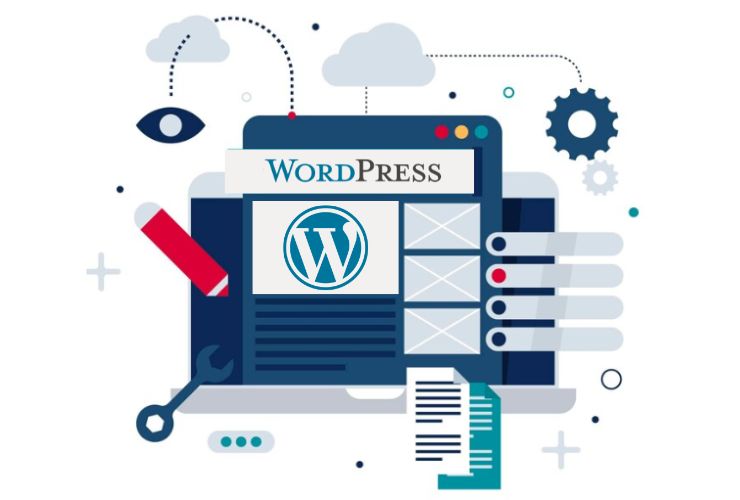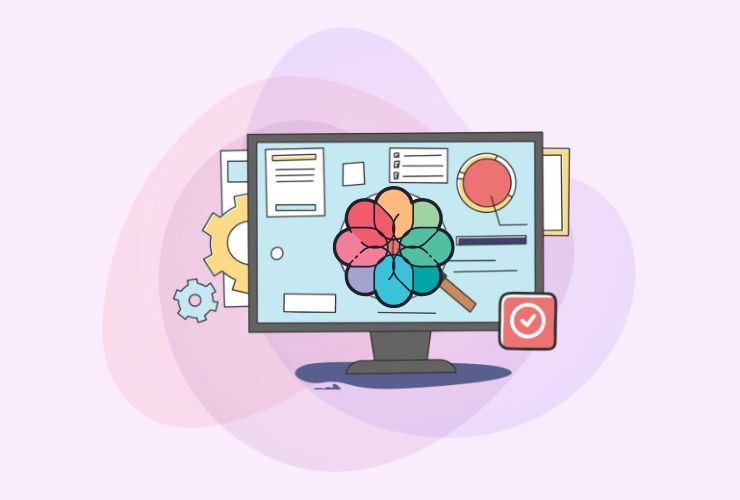Companies today are faced with the need to create mobile applications in a competitive digital landscape that achieve first-rate performance, cater to rich user experience, and are accessible across devices – all while managing costs and timelines. Hybrid app development is proving to be a practical way for companies to achieve this balance.
In essence, a hybrid app is a core application that combines aspects of both native and web applications. A hybrid app is developed using web technologies (HTML, CSS, and JavaScript), and that app runs in a container that allows users to install and have access to native functionality. Due to the popularity of frameworks like React Native, Flutter, and Ionic, the development of hybrid apps has never been more powerful and provides a common-sense approach to deliver quality mobile applications across multiple platforms, from a single codebase.
1. Speed of Development and Deployment
Speed is one of the biggest benefits of hybrid app development. Whereas native apps development requires two separate codebases to develop the same app for both iOS and Android operating systems, a hybrid app utilizes one codebase that will operate with both platforms. Development teams will use less time writing code to build an application, which can result in less time writing testing and debugging code in separate endeavors.
By cutting down development time, companies can get their products to market faster — a crucial factor in industries where being first can mean a significant competitive advantage. Faster deployment also means companies can respond quickly to market demands, customer feedback, or changes in business strategy.
2. Cost-effective option
Development of unique native apps in two platforms like Android and iOS can create a problem named double costs. Not only in the initial build, but even in countless updates, maintenance, and feature changes. This adds to the cost of your mobile strategy. Hybrid development helps solve this, saving you money on unnecessary costs by using one team to develop and maintain an app that able to function across many operating systems.
The costs of developing and maintaining are low enough that even a startup or small business could afford to have a mobile app that would reach an unlimited amount of users in their potential audience. The additional money you save can be used for other strategies to develop your business like marketing; improving customer acquisition; or simply improving your product, which maximizes the return on your investment.
3. Easy maintenance and engagement
Apart from the cost of developing solutions, the ease of maintenance is another strong advantage of hybrid apps. Updating bugs or features in native apps usually involves an app store submission (with various platforms), after which users need to download and install the latest versions of the app. This process can be cumbersome and at times result in delayed engagement of users when they are awaiting updates.
On the other hand, hybrid apps are built with web technologies that allow developers to push new updates instantly. All changes to the one codebase (that is, web & native app) are automatically updated in the apps across all supporting platforms. This reduces version fragmentation and provides consistency in performance for the user. Plus, it gives them new features and security updates, out of the box.
4. Expanding Market Potential
Launching on multiple platforms at the same time gives your business the potential to access both Android and iOS users from day one. With Android representing the biggest global market share, and iOS being predominantly popular in other areas and demographics — access to an app that fully operates on both is critical for businesses who want to maximize their audience and revenue potential.
Hybrid apps remove the obstructions put in place by selecting one platform over the other, allowing companies to reach a much larger audience, gain more downloads, and increase user engagement from the very beginning.
5. Access to Native Capabilities
Another misconception is that hybrid apps cannot access native device capabilities — with modern frameworks, this is no longer accurate. Using tools like React Native and Flutter, hybrid apps have plugins and APIs that allow functionality from native capabilities such as: camera, GPS, accelerometer, push notifications, and offline storage (which was only available previously with native apps)
This means businesses can provide access to native functionality without sacrificing their preferred cross-platform development approach. Users can also use an app experience that still feels responsive and their hardware is still leveraged.
6. Uniform User Experience
User experience (UX) in a mobile app is the single most important and influential element of success. Hybrid apps can deliver a uniform look and feel across borders to multiple platforms and devices so users can have a similar experience regardless if they are on a iPhone, an android phone, or a tablet.
Because there is ultimately one code base and UI components in a hybrid app, designers and developers can spend their time polishing the UI, and designing an intuitive interface that meets the expectations of the user and aligns with the brand’. When users view a mobile app as consistent with their expectations, it builds trust and gives the user more of a reason to not only keep it installed but to keep using it.
7. Compatible with Cloud Services
Hybrid apps easily integrate with cloud-based services enabling the business more scalability and flexibility. businesses can utilize cloud services connecting the app to API’s, storage, authentication services, analysis, etc.
This is particularly important for apps with large datasets, requires real-time updates, or needs to sync between devices. When a hybrid development is combined with cloud services, a business can deliver robust apps without investing heavily in back-end infrastructure.
8. Modern Frameworks Have Improved Performance
After years of lagging and slow animations, older hybrid apps had some performance drawbacks. But the latest frameworks have almost closed the gaps between hybrid apps and native apps when it comes to performance.
The new frameworks like Flutter that run code in a compiled language (Dart) nearly provide full native performance, they render UI components directly instead of using a WebView. React Native allows you to bridge JavaScript code to native modules, giving developers the fast development process of web coding with nearly the same speed and fluidity of native development.
9. Excellent Community Support
Hybrid development frameworks have very large, active communities that produce plugins, extensions, and tools that can help speed along development or make development easier and faster. If you are working through an issue, or want to find a way to add some advanced feature, it is likely that somebody in the community has created a solution or is able to support you.
The strong ecosystem also means businesses will be able to find developers who have experience with those frameworks more easily, therefore initially reducing the frustration of hiring developers and speeding up projects.
10. Future-Proofing Your App
Technology and user expectations change quickly, and hybrid apps give companies the ability to respond to those changes quickly. Hybrid apps allow companies to “keep pace” without having to rewrite the app for each platform. Companies can build a new feature and deploy it for all users at the same time, no matter if they are using the iOS or Android platform. Lastly, hybrid app development keeps your app fresh and competitive in a again fast-moving industry.
Conclusion
Hybrid apps can provide a real world, cost effective, efficient way to build high-quality mobile applications to reach a large and diverse audience. With the merging of not only the advantages of native applications but also the advantages of web browsing, hybrid applications can save time and money, improve maintenance and provide a better user experience regardless of the platform.
Whether your a start-up funding for the first time to produce an app or an enterprise developing new digital products, hybrid app development can be the right option to help you get on the market quickly and successfully.
Contact Us Today













 Database Development
Database Development












































